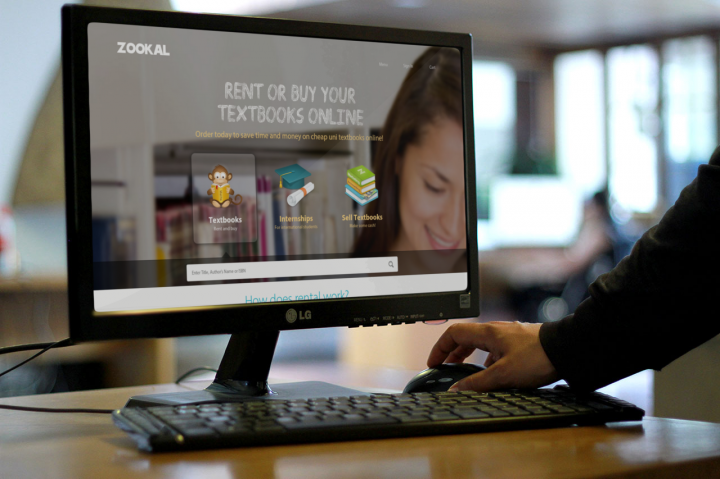Essential University Textbooks: Your Guide to Academic Success

university textbooks Embarking on the journey of higher education is an exhilarating adventure filled with new experiences, challenges, and opportunities. Central to navigating this journey successfully are university textbooks—the indispensable tools that provide the knowledge and foundation for academic success. Whether you’re a freshman stepping onto campus for the first time or a seasoned student nearing graduation, the right textbooks can make all the difference. In this guide, we will explore the importance of university textbooks, how to choose the best ones, and tips for maximizing their use to achieve your academic goals.

The Importance of University Textbooks
Building a Strong Knowledge Base
University textbooks serve as the cornerstone of your academic education. They provide comprehensive coverage of the subjects you are studying, presenting theories, concepts, and methodologies essential for understanding the material. These textbooks are meticulously crafted by experts in the field, ensuring that you have access to accurate and up-to-date information. With a solid knowledge base, you can confidently tackle assignments, exams, and projects.
Enhancing Critical Thinking
Textbooks go beyond simply presenting information; they encourage critical thinking and analysis. Many university textbooks include case studies, real-world examples, and thought-provoking questions that challenge you to apply what you have learned. By engaging with these materials, you develop your analytical skills, enhance your problem-solving abilities, and learn to think critically about complex issues.
Supporting Independent Learning
One of the key skills you will develop during your university years is the ability to learn independently. Textbooks are invaluable in this regard, as they allow you to study at your own pace and revisit challenging concepts as needed. They provide a structured framework for self-directed learning, enabling you to take control of your education and tailor your study habits to suit your individual needs.
Choosing the Right University Textbooks
Research and Recommendations
Selecting the right university textbooks can be a daunting task, given the vast array of options available. Start by researching the textbooks recommended by your professors and course syllabi. Professors often have extensive experience with various textbooks and can provide valuable insights into which ones are most effective for your course. Additionally, consider seeking recommendations from upperclassmen or academic advisors who have already navigated the same courses.
Evaluating Content and Quality
When choosing textbooks, it’s essential to evaluate the content and quality. Look for textbooks that are comprehensive, well-organized, and easy to understand. Check the publication date to ensure the information is current, especially in rapidly evolving fields like science and technology. Reading reviews and previews can also give you a sense of the textbook’s strengths and weaknesses.
Considering Cost and Accessibility
Textbooks can be a significant financial investment, so it’s important to consider cost and accessibility. Look for options to rent or buy used university textbooks to save money. Many publishers also offer digital versions, which can be more affordable and convenient. Additionally, check if your university library provides access to the textbooks you need, either in physical or digital form.
Maximizing the Use of University Textbooks
Active Reading Strategies
To get the most out of your university textbooks, employ active reading strategies. This means engaging with the material rather than passively reading. Highlight key points, take notes in the margins, and summarize sections in your own words. Creating mind maps or diagrams can also help you visualize complex concepts and see how different ideas are connected.
Regular Review and Revision
Consistent review and revision are crucial for retaining information and understanding the material deeply. Schedule regular study sessions to revisit the content in your textbooks. Use techniques like flashcards, practice quizzes, and group study sessions to reinforce your learning. Revisiting the material multiple times helps solidify your knowledge and makes it easier to recall during exams.
Utilizing Supplementary Resources
Many university textbooks come with supplementary resources, such as online platforms, practice problems, and multimedia content. Take full advantage of these additional tools to enhance your understanding. Online platforms often include interactive quizzes, video lectures, and additional readings that can provide different perspectives and deepen your knowledge.
Popular University Textbook Publishers and Their Offerings
Pearson Education
Pearson is one of the leading publishers of educational materials, offering a wide range of university textbooks across various disciplines. Their textbooks are known for their clarity, comprehensive coverage, and integration of digital resources. Pearson’s MyLab and Mastering platforms provide personalized learning experiences, with interactive content and assessments tailored to individual student needs.
McGraw-Hill Education
McGraw-Hill is another prominent publisher, renowned for its high-quality textbooks and innovative learning solutions. Their Connect platform offers adaptive learning technology, helping students focus on areas where they need improvement. McGraw-Hill’s university textbooks cover a broad spectrum of subjects, from humanities to STEM fields, and are designed to support both teaching and learning.
Cengage Learning
Cengage Learning is known for its commitment to accessibility and affordability. Their Cengage Unlimited subscription service provides unlimited access to a vast library of university textbooks and digital resources for a single fee. This model makes it easier for students to access the materials they need without financial strain. Cengage textbooks are also enriched with multimedia content, making learning more engaging.
The Future of University Textbooks
Digital Transformation
The landscape of university textbooks is rapidly evolving with the advent of digital technology. E-books, interactive platforms, and online resources are becoming increasingly prevalent, offering new ways to engage with educational content. Digital textbooks are not only more portable and convenient but also provide opportunities for interactive and personalized learning experiences. As technology continues to advance, we can expect even more innovative features and formats in the world of academic textbooks.
Open Educational Resources (OER)
Open Educational Resources (OER) are freely accessible and openly licensed materials that are revolutionizing education. OER textbooks are often created by educators and institutions, providing high-quality resources without the cost barrier. These textbooks are particularly valuable in making education more inclusive and equitable. As the OER movement gains momentum, more students will benefit from accessible and affordable learning materials.
Adaptive Learning Technologies
Adaptive learning technologies are designed to personalize the learning experience based on individual student performance. By analyzing data on how students interact with the material, these technologies can adjust the content and provide targeted support. Many university textbooks are beginning to incorporate adaptive learning features, making it possible to create customized learning pathways that cater to each student’s unique needs and pace.
Practical Tips for Managing University Textbooks
Organizing Your Textbooks
Keeping your textbooks organized is essential for efficient studying. Designate a specific area for your textbooks, whether it’s a bookshelf, desk, or digital folder. Label your books by course or subject, and keep them in a place where they are easily accessible. Organizing your textbooks helps reduce clutter and ensures that you can quickly find the materials you need when you need them.
Balancing Print and Digital Textbooks
With the rise of digital textbooks, many students find themselves balancing between print and digital formats. Each has its advantages: print textbooks are tactile and can be easier on the eyes, while digital textbooks are portable and often come with interactive features. Consider your study habits and preferences when deciding which format to use. Some students prefer to use digital textbooks for convenience and print textbooks for intensive reading and note-taking.
Selling and Donating Used Textbooks
Once you have completed a course, consider selling or donating your university textbooks. Many bookstores and online platforms buy back used textbooks, allowing you to recoup some of your costs. Alternatively, donating textbooks to libraries, schools, or fellow students is a great way to give back and help others access the materials they need. Selling or donating textbooks also helps reduce waste and promote sustainability.
university textbooks
In the pursuit of academic success, university textbooks play a pivotal role. They provide the knowledge, structure, and resources needed to excel in your studies. By choosing the right textbooks, employing effective study strategies, and taking advantage of digital innovations, you can maximize the benefits of these essential tools. Whether you are just starting your university journey or are well on your way, investing in high-quality textbooks and using them wisely will set you on the path to academic achievement. Embrace the power of university textbooks and unlock your full potential today!







